Everything You Need to Know About the Cavalier King Charles Spaniel Dog

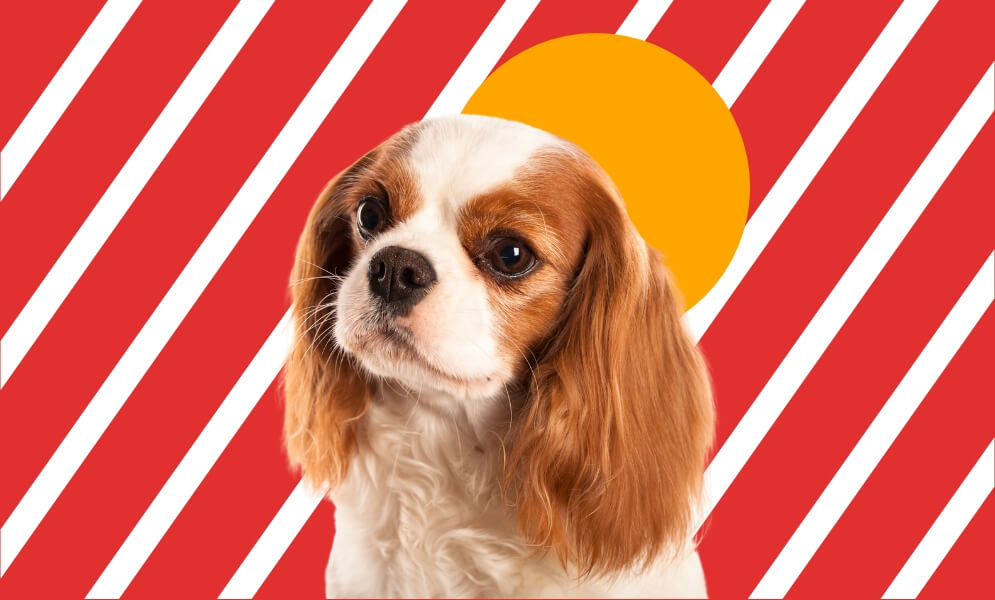
If you are on the hunt for a furbaby who is both charming and cuddly, then look no further than the Cavalier King Charles Spaniel. These little bundles of joy are known for their affectionate nature, adorable looks, and a personality that can light up any room.
These delightful dogs have a rich history and a unique blend of traits that make them a beloved choice for countless families worldwide. In this article, we’re diving into everything you need to know about the Cavalier King Charles Spaniel. From their royal history and distinctive features to their playful temperament and care needs, we’ve covered everything in this article. So let’s get started.
History and Origin of the Cavalier King Charles Spaniel
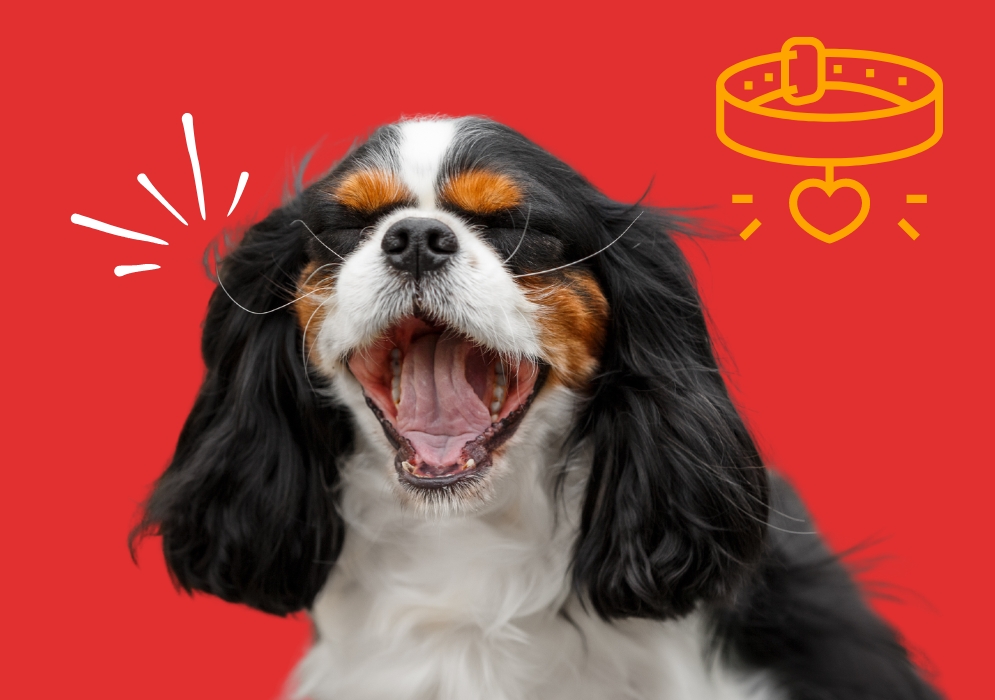
The history of Cavalier King Charles Spaniel spans centuries and is deeply rooted in English royalty. These beloved companions were cherished by King Charles II, who adored their gentle demeanor and unwavering loyalty. The breed’s name pays homage to this regal connection, as these dogs were once referred to as “comforters” by the king himself.
Originally bred as lap dogs for the aristocracy, Cavalier King Charles Spaniels were highly prized for their affectionate nature and their ability to provide companionship to their noble owners. Their popularity soared during the 17th and 18th centuries. During this period, they became a symbol of elegance and refinement among the upper echelons of society.
Despite facing near extinction during the World Wars, the breed was revived through the efforts of dedicated breeders who recognized the Cavalier King Charles Spaniel’s unique charm. Today, these regal companions have captured the hearts of dog lovers around the globe, cementing their place as one of the most beloved and sought-after breeds.
Physical Characteristics of the Cavalier King Charles Spaniel
The Cavalier King Charles Spaniel is known for its distinct physical appearance that sets them apart from other Spaniels. These compact yet sturdy dogs typically stand between 12 and 13 inches tall and weigh between 13 and 18 pounds, making them the perfect size for apartment living or city dwellers.
Soulful Eyes
One of the breed’s most striking features is their expressive eyes, which radiate warmth and intelligence. Framed by long, floppy ears and a rounded skull, these soulful eyes are a window into the Cavalier King Charles Spaniel’s gentle and affectionate nature.
Silky, Flowy Coat
Their silky, flowing coat comes in a variety of colors, including the iconic Blenheim (chestnut and white), Tricolor (black, white, and tan), Ruby (solid rich red), and Black and Tan. This luxurious coat requires regular grooming to maintain its luster and prevent matting, but the effort is well worth it when you behold the breed’s regal beauty.
Beyond their physical attributes, Cavalier King Charles Spaniels possess a graceful and well-balanced gait, allowing them to move with an effortless elegance that captivates onlookers.
Temperament and Personality Traits of the Cavalier King Charles Spaniel

The Cavalier King Charles Spaniel is renowned for his gentle, affectionate, and loyal temperament. This makes them an ideal companion for families and individuals alike. These dogs thrive on human interaction and crave the attention and love of their owners. However, if you are looking for dog breeds for home and family protection, the Cavalier King Charles Spaniel is not the one.
Always Eager to please
One of the breed’s most endearing qualities is their eagerness to please. Consequently, because of this nature, they are highly trainable and responsive to positive reinforcement methods.
Their intelligence and willingness to learn make them excellent candidates for dog sports like obedience training and agility competitions. Cavalier King Charles Spaniels also excel in therapy work, where their calm and gentle demeanor can provide comfort and joy to those in need.
Ready to Play
Despite their small stature, Cavalier King Charles Spaniels possess a courageous and confident spirit. They are known for their playful and energetic nature, often engaging in games and activities with boundless enthusiasm. However, they are also content to cuddle up with their owners and enjoy quiet moments of relaxation, making them adaptable to various lifestyles.
Protective of loved ones
While they are generally good with children and other pets when properly socialized, Cavalier King Charles Spaniels may exhibit some reserve around strangers. This protective instinct stems from their deep devotion to their families. But with proper training and socialization, they can learn to welcome new faces with warmth and friendliness.
Health Issues and Concerns Associated With the Cavalier King Charles Spaniel
Like any breed, the Cavalier King Charles Spaniel is susceptible to certain health concerns that prospective owners should be aware of. One of the most significant issues affecting the breed is Mitral Valve Disease (MVD), a heart condition that can lead to heart failure if left untreated.
Responsible breeders will screen their breeding stock for MVD and provide potential buyers with health clearances to ensure transparency and promote the breed’s overall well-being. Regular veterinary checkups and monitoring for signs of heart disease are essential for Cavalier King Charles Spaniel owners. So you need to know
Additionally, the breed may be prone to conditions like syringomyelia (a neurological disorder), patellar luxation (knee cap dislocation), and eye problems like cataracts or dry eye. Reputable breeders should also screen for these conditions and provide documentation to potential buyers.
While these health concerns may seem daunting, it’s important to remember that many Cavalier King Charles Spaniels live long and healthy lives with proper care and regular veterinary check-ups. Responsible ownership, including providing a balanced diet, regular exercise, and preventative care, can go a long way in mitigating potential health issues.
Training and Exercise Needs of the Cavalier King Charles Spaniel
Training a Cavalier King Charles Spaniel is a rewarding experience, as these intelligent and eager-to-please dogs thrive on positive reinforcement and gentle guidance. Their natural desire to please their owners makes them highly responsive to positive training methods
While they may be small in stature, Cavalier King Charles Spaniels have moderate exercise needs that should be met to maintain their physical and mental well-being. Regular walks, playtime in a secure area, and interactive games such as fetch or puzzle toys can provide the necessary stimulation and exercise for this breed.
In addition to physical exercise, mental stimulation is equally important for this intelligent breed. Engaging in training sessions, teaching them new tricks, or providing interactive toys can help keep their minds active and prevent boredom or destructive behaviors.
Grooming requirements for the Cavalier King Charles Spaniel
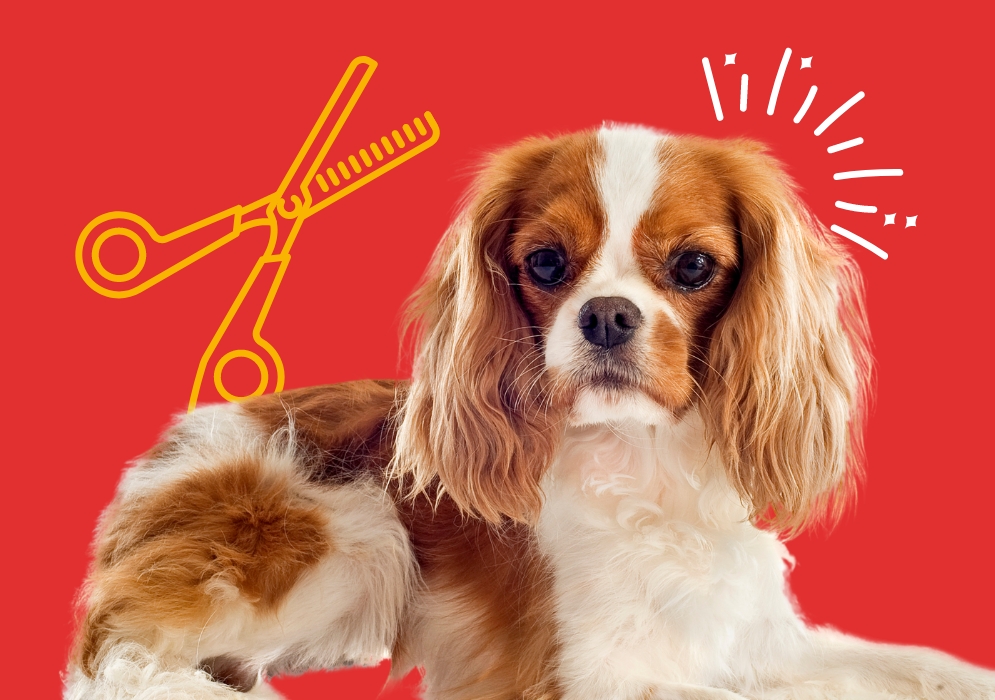
The Cavalier King Charles Spaniel’s luxurious coat is a defining feature of the breed. But it also requires regular grooming to maintain its luster and prevent matting. These dogs shed moderately throughout the year, with heavier shedding occurring during seasonal changes.
So here are some things you should do to properly groom your dog:
- Brushing your Cavalier King Charles Spaniel at least once or twice weekly is essential. It will help remove loose hair and prevent tangles or mats from forming.
- Use a slicker brush or a metal comb to brush their coat. It can help distribute the natural oils throughout their coat, keeping it healthy and shiny.
- it’s important to use a gentle, dog-specific shampoo to avoid stripping the coat of its natural oils.
- After bathing, thoroughly drying your Cavalier King Charles Spaniel’s coat is crucial to prevent moisture-related skin issues.
- Trimming the hair around their eyes, ears, and paws can also help maintain a neat and tidy appearance.
Feeding and Nutrition Guidelines for the Cavalier King Charles Spaniel

Providing a well-balanced and nutritious diet is essential for the overall health and well-being of your Cavalier King Charles Spaniel. These small dogs have specific dietary requirements that should be met to support their energy levels, maintain a healthy weight, and promote overall vitality.
Here are some points that you should keep in mind:
- When selecting a high-quality dog food, look for brands that use whole, natural ingredients.
- The dog food should also be tailored to the breed’s size and life stage
- Cavalier King Charles Spaniels thrive on a diet rich in lean proteins, complex carbohydrates, and essential fatty acids to support their coat and skin health. So make sure to check the list of ingredients
- In addition to a balanced diet, providing fresh water at all times is crucial. It will help them stay hydrated, which is good for their overall well-being.
It’s important to follow portion guidelines and avoid overfeeding, as Cavalier King Charles Spaniels can be prone to obesity, which can exacerbate potential health issues. Consult with your veterinarian or a professional pet nutritionist to determine the appropriate caloric intake and feeding schedule for your individual dog.
Socialization and Interaction With Other Pets and Children
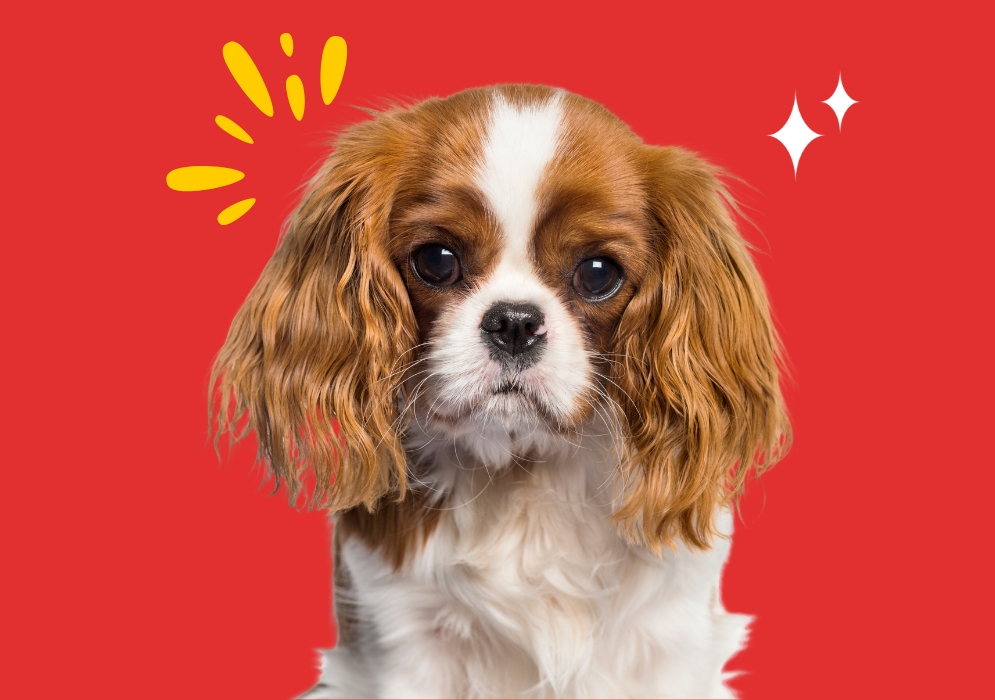
Proper socialization is key to ensuring that your Cavalier King Charles Spaniel grows into a well-adjusted and confident companion. These dogs thrive on human interaction and benefit greatly from early and ongoing socialization with people, other pets, and various environments.
Slowly Expose Them to Unfamiliar Situations
You should slowly expose your Cavalier King Charles Spaniel puppy to various sights, sounds, and experiences in a positive and controlled manner. It can help them develop confidence. Additionally, it will reduce the likelihood of fear or aggression towards unfamiliar situations.
Supervise Interactions With Children Initially
When it comes to interacting with children, Cavalier King Charles Spaniels is generally gentle and patient. This attribute makes them excellent family companions. However, you should supervise interactions at first. Also, teach children how to properly interact with dogs to prevent accidental harm or stress.
Introduce to Other Pets Under Controlled Situation
Its crucial to introduce your dog to other pets gradually and under controlled circumstances. With proper socialization and training, these dogs can coexist harmoniously with other animals, including cats. But first, you should allow both animals to become familiar with each other
Remember, socializing your puppy is an ongoing process. Consequently, it’s essential to continue exposing your Cavalier King Charles Spaniel to new experiences throughout their life to maintain their confidence and adaptability.
Finding a Reputable Breeder or Adopting a Cavalier King Charles Spaniel
When it comes to adding a Cavalier King Charles Spaniel to your family, you have two main options: purchasing from a reputable breeder or adopting from a rescue organization or shelter.
If you choose to purchase from a breeder, it’s essential to do your research. You should look for one who adheres to ethical and responsible breeding practices and prioritizes the health and well-being of their dogs. Responsible breeders will provide health clearances, answer questions transparently, and allow you to meet the parents. You will also be able to see the living conditions of their breeding stock.
Alternatively, adopting a Cavalier King Charles Spaniel from a rescue organization or shelter can be a rewarding experience. In the process, you will also be helping to provide a loving home to a dog in need. Many reputable rescues specialize in specific breeds. If you contact such organizations, they can match you with a Cavalier King Charles Spaniel that fits your lifestyle and preferences.
Regardless of your route, be prepared for the commitment and responsibility of owning a Cavalier King Charles Spaniel. These dogs thrive on human companionship. They also require time, attention, and proper care to ensure their physical and emotional well-being.
Is the Cavalier King Charles Spaniel the Right Dog Breed for You?
Now that you know a bit more about the Cavalier King Charles Spaniel, it is time to decide if this is the dog for you and your family or not.
If you seek a loyal, affectionate, and gentle-mannered dog who thrives on human interaction, the Cavalier King Charles Spaniel may be the ideal choice. Their eagerness to please, trainability and adaptability make them a wonderful addition to households of all sizes, from cozy apartments to spacious homes.
However, it’s important to consider the potential health concerns associated with the breed. Since they are prone to many health issues, you must provide proper care, including regular grooming, exercise, and veterinary check-ups.
You should only welcome home a Cavalier King Charles Spaniel If you are willing and able to provide the love, attention, and resources necessary for their well-being. So, ultimately, the decision to welcome a Cavalier King Charles Spaniel is yours. You should make this decision only after careful consideration.
If you’re ready to begin the journey of becoming a parent to a Cavalier King, Charles Spaniel, we encourage you to reach out to reputable breeders or rescue organizations in your area. With their unwavering loyalty and endearing personalities, these dogs will surely bring boundless joy and companionship into your life.






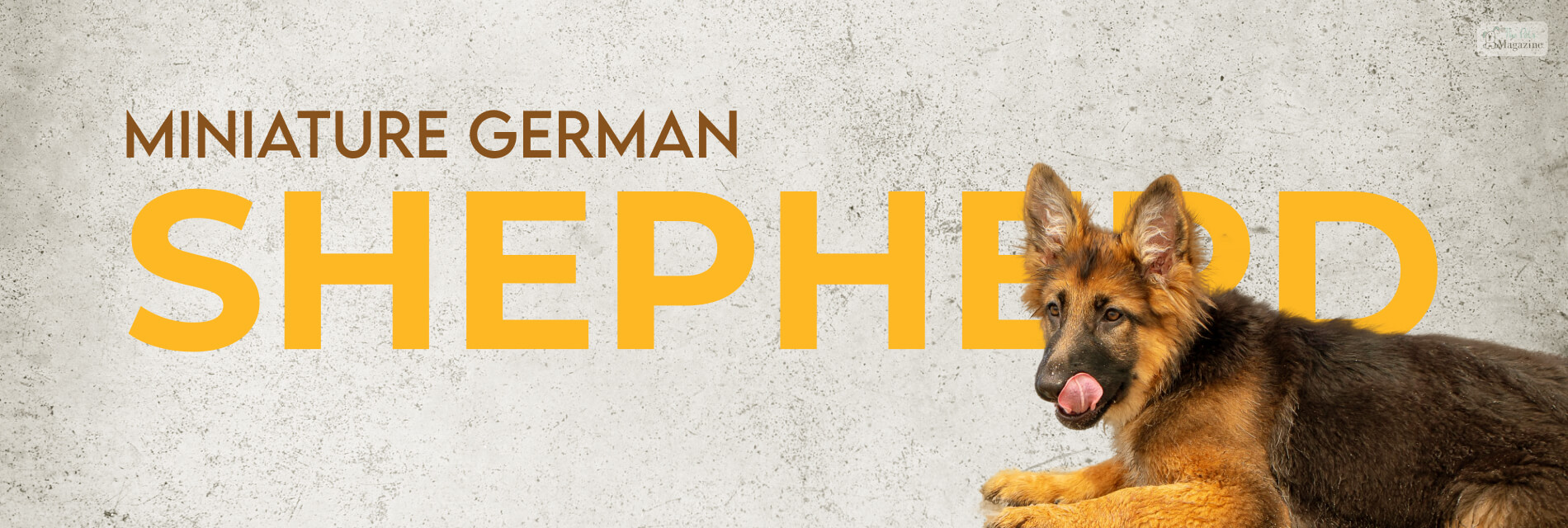
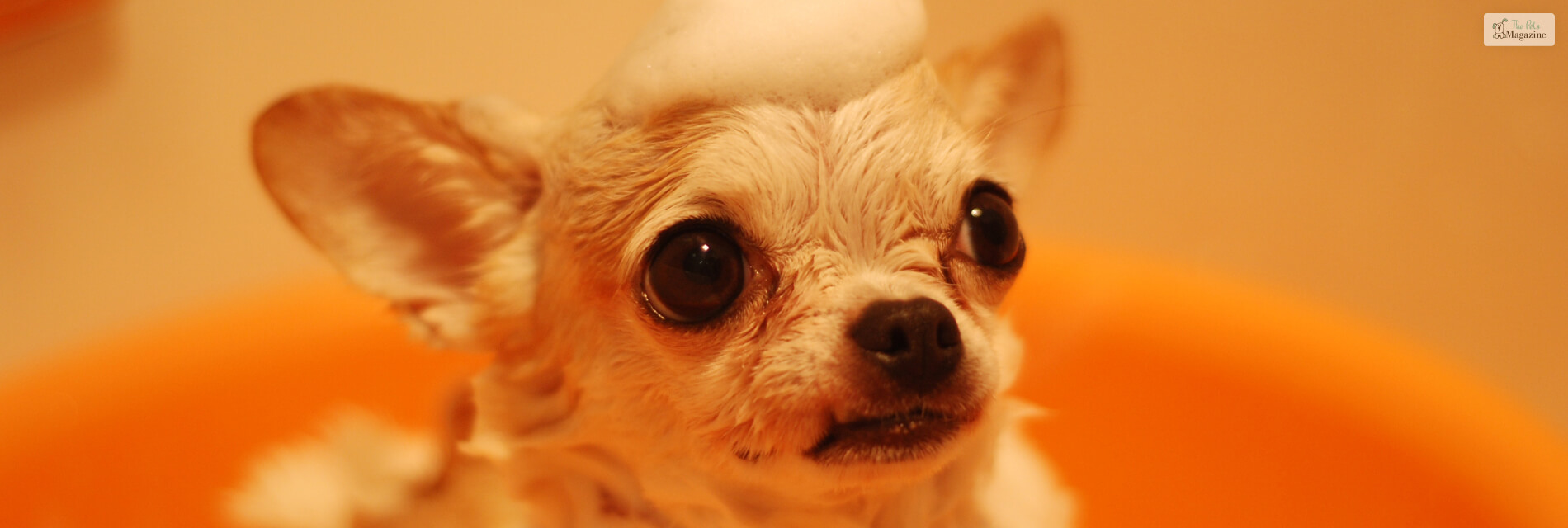
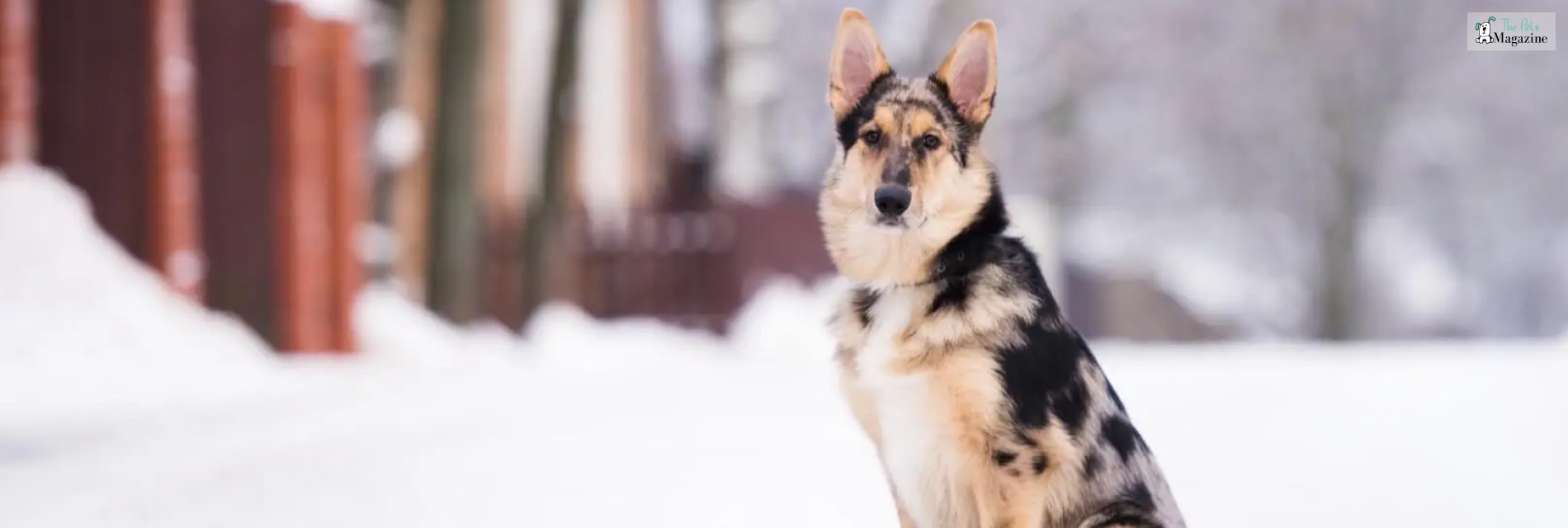
Leave A Comment